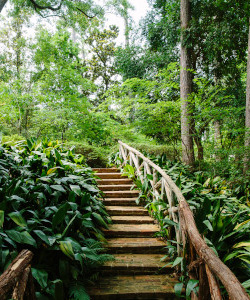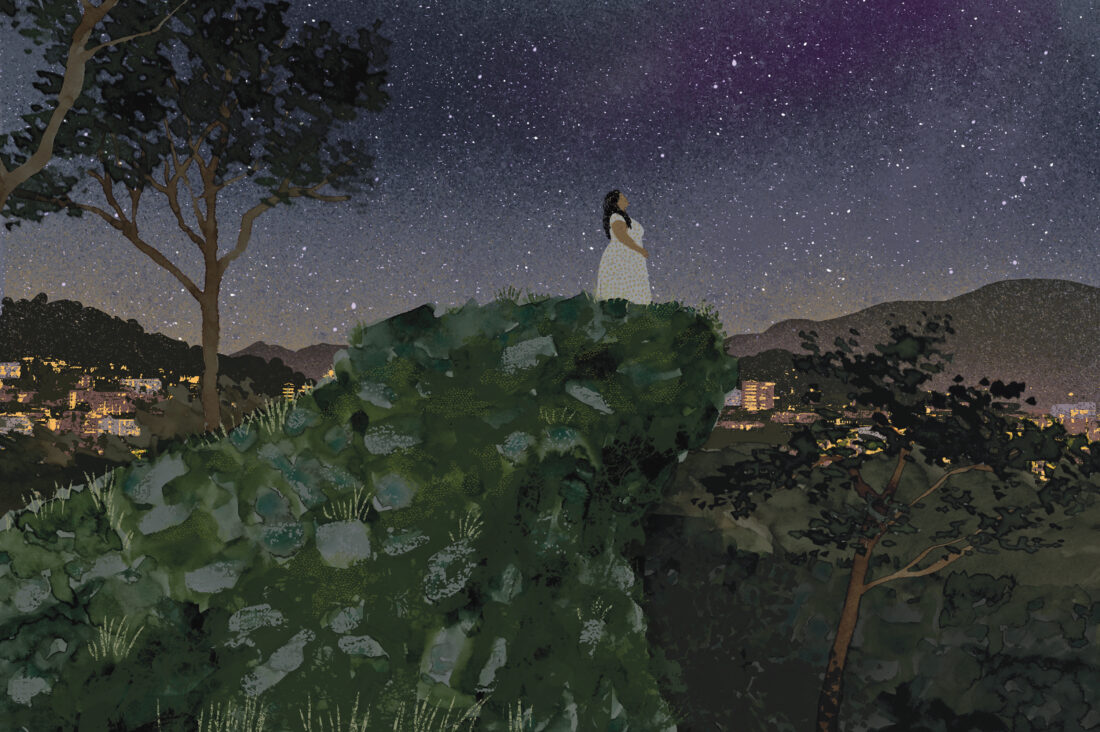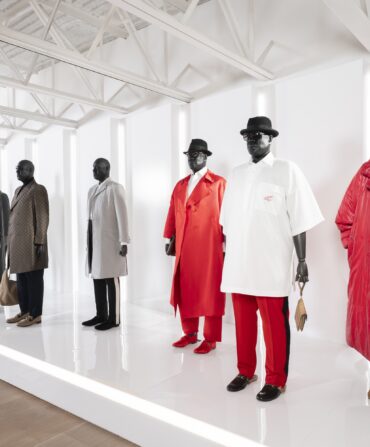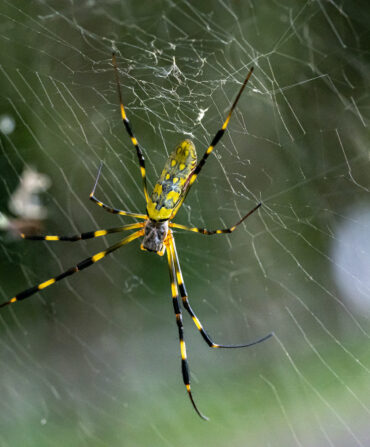I consider myself South Carolinian through and through—my lineage in the state stretches back hundreds of years. And yet if you did some digging, you would find the word Alabama at the top of my mauve-pink birth certificate.
I was born in the shadow of the U.S. Space & Rocket Center in Huntsville during the year of the space shuttle Challenger disaster. Though my family left town not long after my birth, our brief stay there has become a time marker in our lives, perhaps unlike any other.

My parents in those days worked retail, and they lived in Huntsville only about a year before they moved to Nashville and then eventually to Spartanburg, South Carolina, for better opportunities. They never returned. And neither had I. But for decades, I had wondered what had happened there, how the city came to leave such an impression on our family.
My father is dead, and when I asked my mother, she said she doesn’t remember that year. I wondered if it is simply easier to forget—if the lack of information was her brain’s attempt at protection. From what I’ve gathered, my arrival signaled a juncture of sorts. With a child in their care, the freewheeling, combustible, often-separated couple would have to at least attempt to settle into the role of good parents.
I tried to conjure memories from Dad’s time working at Hills Department Store in Huntsville by playing old commercials on YouTube. “When you really need a low price, Hills really has it, every day,” the enthusiastic voice-over actor emphasized. I showed Mom old ads and shopping bags that Hills superfans had posted on Facebook. She then spent twenty minutes recalling the snack bar, the way customers could smell the popcorn the moment they walked through the door. The soft pretzels and Coke Icees were unmatched, she said. But there is nothing of me, of our family, in these memories.
If I wanted to know about Huntsville, I would just have to go there. At the dawn of the new year, that’s how I found myself guiding my station wagon along a series of “rollers,” the repeating hills of a mountain piedmont. I clenched the wheel a little too hard, unsure of what I was searching for. When these hills ended and my destination emerged, what might the journey uncover about my history? On my way in, around Scottsboro, Alabama, the sunset over the Tennessee River finally put me at ease—the place to which I was arriving looked similar to the place I called home, with its mountains, valleys, streams, and intense blue skies.
Once in Huntsville, I explored for a couple of days. I visited the Huntsville Museum of Art and walked around downtown with my quart-sized glass jar of Healing Honeysuckle brew from the family-owned Piper & Leaf Tea Company (the jars are a local thing—Piper & Leaf even sells mason jar cup holder adapters for cars). I did the Rocket City Civil Rights Driving Tour via an app, and then spent an afternoon at Lowe Mill, a former textile facility now touted as the country’s largest privately owned arts center. With more than 150 artist studios, seven galleries, a theater, a garden, and performance spaces, the Mill seems to indicate that this is a town that values creativity. What might it have been like to grow up here? I wondered. What might have happened if we had stayed?
At the former Hills location in the old West Shopping Plaza off University Drive, nothing remained to indicate it ever existed. My new-build hotel room sat across the street from the former location of Madison Square Mall, where Mama had worked at Castner Knott. That era of retail is long dead. But one constant in Huntsville endures: the U.S. Space & Rocket Center.
In our house we were space junkies, and Dad watched every space opera and sci-fi flick that came on television. Space was a different type of adventure for the boy who grew up on Westerns, but the elements of risk-taking and chivalric romance crossed genres. I imagined how Huntsville’s rocket fever and the scientists who came to see Dad at Hills to buy Underoos for their kids may have fueled his love of extraterrestrial storytelling and technology.
Only when standing in front of the rockets at the center’s entrance did I realize that perhaps this is where my father, who was always good at math, might have read his first star chart. All his talk of comets, moons, and asteroids finally made sense. Granted, some of his knowledge came from our agricultural background—we are a people that plant by the weather signs—but I had always wondered how he knew so many names. This center specializing in space, the stars, and humanity’s attempts to get out there was right here.
I toured the museum, taking in the rockets and other spacecraft. But I kept straying back to the interactive planetarium to watch three different shows. My father and these scientists focused on looking up, out, and around, but I now spend much of my time looking backward. Fear of change—perhaps the seeds of which were planted here—is the black hole at the center of my everything, and I’m always fretting about what will rip it apart.
As I often do, I turned to the mountains to gain a new perspective. On my last evening in Huntsville, I drove up into Monte Sano Nature Preserve, just a few miles from downtown. At more than a thousand feet above sea level, the view from there spread out the map of my birthplace to examine. It wasn’t until then that I realized I needed not to peer into the past for clarity, but to look within.
Stargazing is an individual and a collective experience. I had sat in the planetarium for hours, surrounded by hundreds of strangers looking at a velvety navy sky sprinkled with stars. We could, all of us, wonder at the marvels of the unseen universe; as a society, we depend on seasonal and lunar cycles to mark time and events. But our relationship to our place in this world and beyond, even if we are standing side by side, is different. What we each see will always be slightly distorted in the perception of another.
At the planetarium, I experienced firsthand how deep-space objects invisible to the naked eye can be rendered spectacular when scientists have telescopes powerful enough to view them. Up at Monte Sano, I looked down at the glowing city with its pinpricks of light, little indicators of people both simply existing and working to understand our purpose.
The Alabama sky above me filled with stars. All the intriguing celestial bodies I grew up learning the names of from Dad—Cepheus the king, Cygnus the swan, Cassiopeia the queen—were there. So were the Pleiades and Hyades star clusters. Seemingly fixed in space but actually always moving. Changing.
I came to Huntsville to find a missing piece of my early years; to understand if or how this place had left a mark on who I am. But standing on that ridge, I realized that no matter what might change in the future, no matter where I lived, one thing would remain true: My spine is made of the Appalachians. From Huntsville (birth) to Spartanburg (youth) and even up to New Hampshire (for college), these mountains have stood firm. Maybe in the story of myself, simply being Appalachian is enough.








